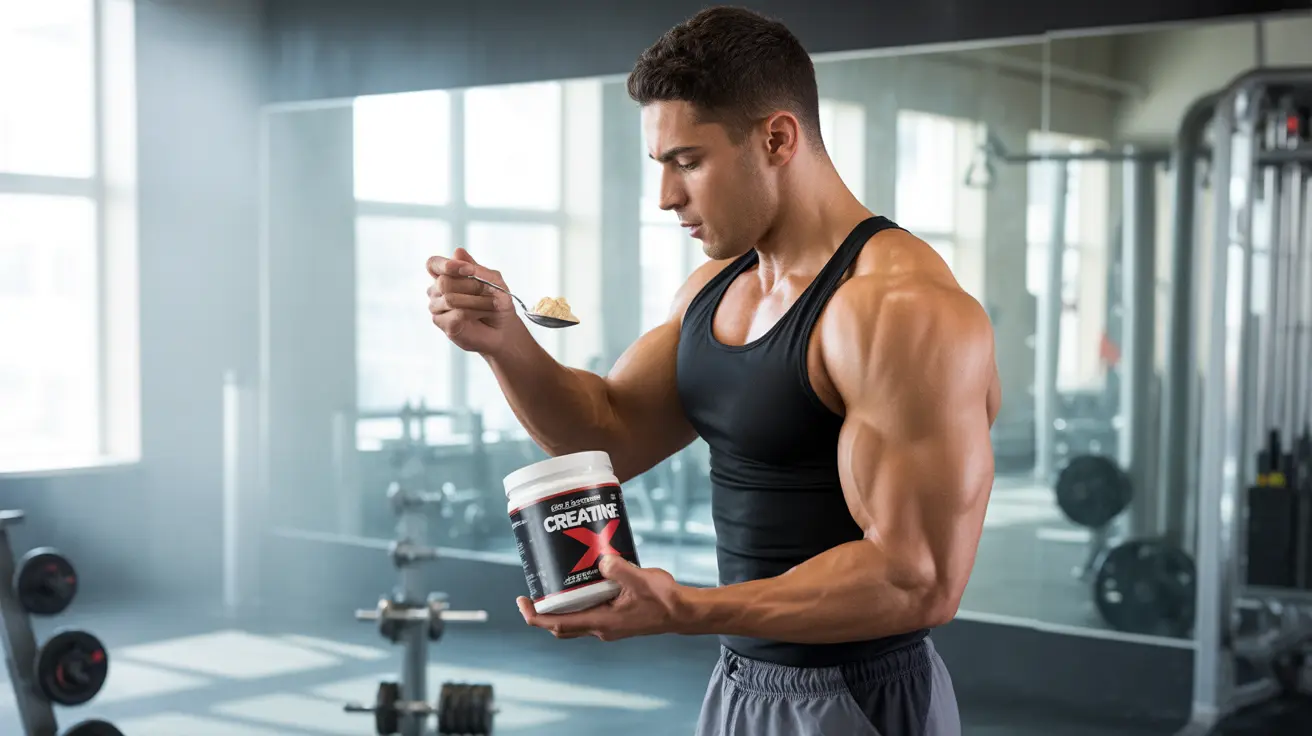Creatine has established itself as one of the most thoroughly researched and effective supplements for enhancing muscle growth and athletic performance. This comprehensive guide explores how creatine works, its benefits for muscle development, and the most effective ways to incorporate it into your fitness routine.
Understanding how creatine supports muscle growth is essential for anyone looking to optimize their strength training results. Whether you're an experienced athlete or just starting your fitness journey, knowing the science behind this supplement can help you make informed decisions about its use.
How Creatine Works in the Body
Creatine is naturally produced in the body and plays a crucial role in energy production during high-intensity, short-duration activities like weightlifting. When supplemented, creatine increases phosphocreatine stores in your muscles, providing additional energy for intense exercise and promoting muscle growth.
The supplement works by enhancing your body's ability to produce ATP (adenosine triphosphate), the primary energy source for muscle contractions. This increased energy availability allows for more powerful workouts and better performance during resistance training.
Benefits for Muscle Growth and Performance
Research has consistently shown that creatine supplementation offers several key benefits for muscle development:
- Increased muscle fiber size
- Enhanced protein synthesis
- Improved workout performance
- Better muscle recovery
- Reduced exercise-induced inflammation
These benefits combine to create an optimal environment for muscle growth, particularly when paired with proper resistance training and nutrition.
Safe Usage and Dosage Guidelines
The most common and well-researched approach to creatine supplementation involves two phases: loading and maintenance. During the loading phase, take 20 grams daily, divided into four 5-gram servings, for 5-7 days. After loading, maintain with 3-5 grams daily.
Alternatively, you can skip the loading phase and take 3-5 grams daily from the start. While this approach takes longer to maximize muscle creatine stores, it's equally effective in the long term and may cause fewer digestive issues.
Timing and Optimization Strategies
While timing isn't as critical as consistency, certain strategies can help optimize creatine's benefits:
- Take creatine with meals to enhance absorption
- Combine with carbohydrates to improve uptake
- Maintain consistent daily supplementation
- Stay well-hydrated throughout the day
Special Considerations for Different Population Groups
The effectiveness of creatine can vary among different groups. Older adults may experience significant benefits for muscle preservation and strength gains, though results might develop more gradually. Non-resistance trainers can still benefit from creatine, particularly when beginning an exercise program.
Frequently Asked Questions
How does creatine supplementation help increase muscle growth and strength?
Creatine supplementation increases muscle energy stores, allowing for more intense workouts and better performance during resistance training. It also enhances muscle protein synthesis and reduces muscle breakdown, creating optimal conditions for muscle growth and strength gains.
Is creatine safe to take for muscle building, and what are the possible side effects?
Creatine is generally considered safe, with extensive research supporting its use. Common side effects may include mild water retention and occasional digestive discomfort. These effects are typically minimal and often resolve with proper dosing and adequate hydration.
When is the best time to take creatine to maximize muscle growth and workout performance?
While creatine can be taken any time of day, taking it with meals or post-workout may enhance absorption. The most important factor is consistency in daily supplementation rather than specific timing.
Can creatine supplements improve muscle recovery and reduce soreness after exercise?
Yes, creatine has been shown to improve muscle recovery and reduce exercise-induced muscle damage. It helps maintain cellular hydration and reduces inflammatory markers, potentially leading to decreased muscle soreness and faster recovery.
Does creatine work equally well for older adults or people who don't do resistance training?
While creatine is most effective when combined with resistance training, it can benefit various populations. Older adults may experience improved muscle strength and function, while non-resistance trainers can still see benefits in overall muscle health and performance when starting an exercise program.




